

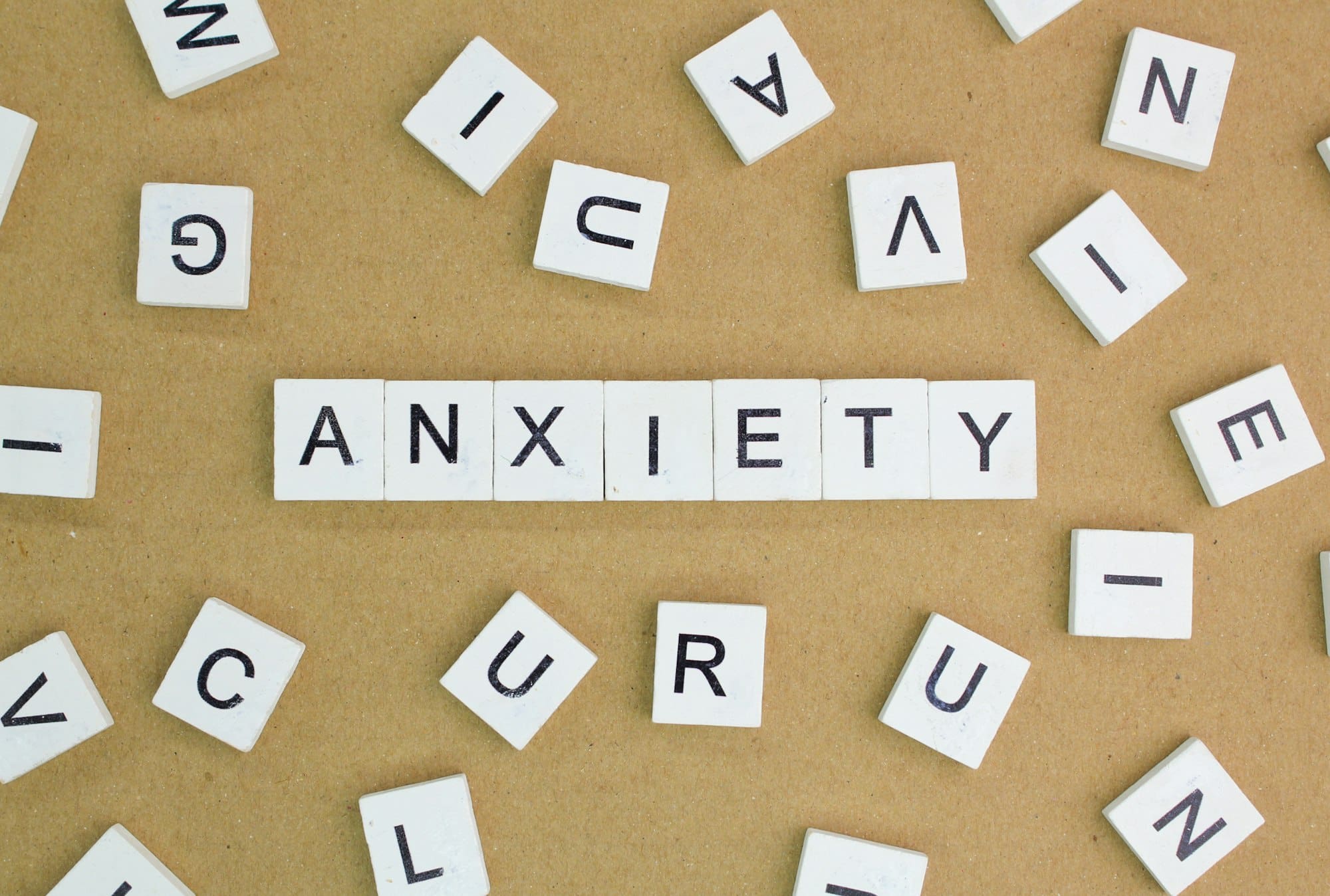
Anxiety and stress are part of the human experience, emotions that everyone faces at some point in life. Whether it’s due to work, relationships, or just the pressures of modern living, these feelings can sometimes become overwhelming.
But don’t fret! There are practical techniques that can help you manage these emotions effectively.
“You can’t always control what goes on outside, but you can always control what goes on inside.” – Wayne Dyer
In this article, we’ll explore several strategies that can help you regain control and lead a more balanced, stress-free life. From deep breathing exercises to mindful meditation, and even practical lifestyle adjustments, you’ll find a variety of methods that suit different needs and preferences.
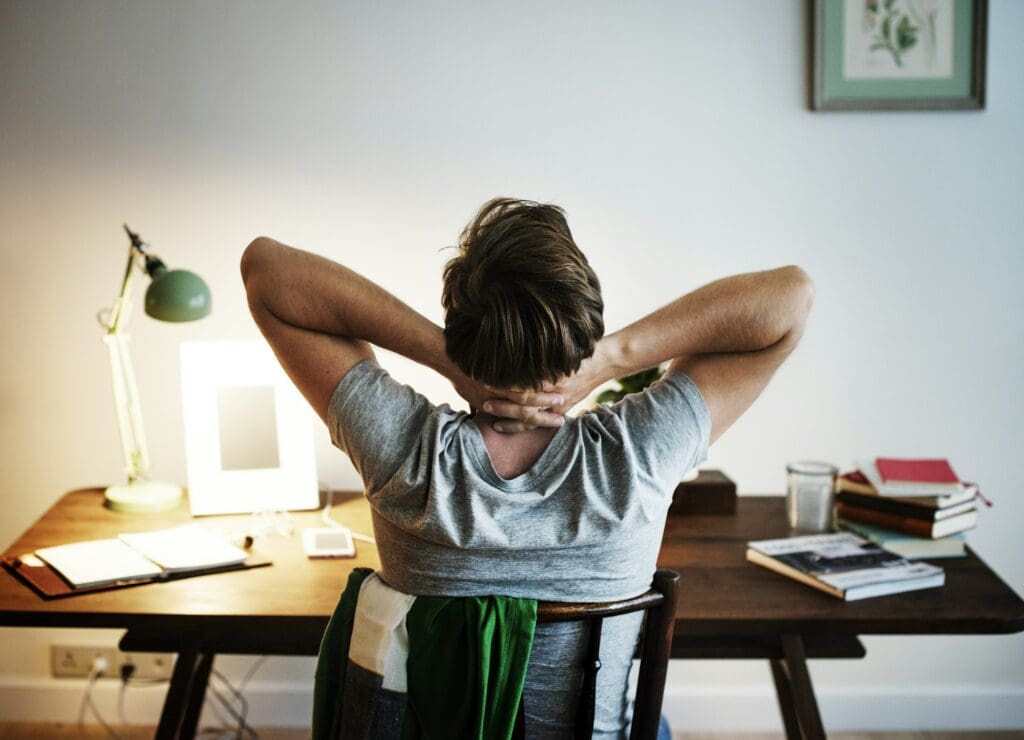
Mindfulness meditation is a powerful tool to anchor yourself in the “now,” helping you to find calm amidst the chaos. This practice involves focusing your mind on the present moment, allowing thoughts to pass by without judgment.
It’s an effective way to reduce anxiety and stress, promoting a sense of peace and balance.
Imagine sitting comfortably in a quiet space, closing your eyes, and taking a deep breath. As you exhale, let go of the day’s worries and bring your attention to the rhythm of your breath. This simple act of concentration can draw your mind away from anxious thoughts and ground you in the present.
One common technique is the body scan. Begin by focusing on your toes and slowly move your attention upwards through your body. Notice any sensations—tingling, warmth, or tension—as you go. This exercise can increase awareness of how stress affects you physically and help you release it.
Another popular practice is observing your thoughts. When you meditate, thoughts will naturally arise. Instead of engaging with them, picture them as clouds drifting across the sky.
Acknowledge their presence and gently bring your focus back to your breath. This reinforces the skill of not getting entangled in stressful thoughts.
Remember, mindfulness is not about achieving a blank mind; it’s about creating a gentle space of awareness. With regular practice, you might find it easier to remain calm and centered, even in challenging situations.
If you’re new to mindfulness, start with just a few minutes a day and gradually increase the duration as you become more comfortable.
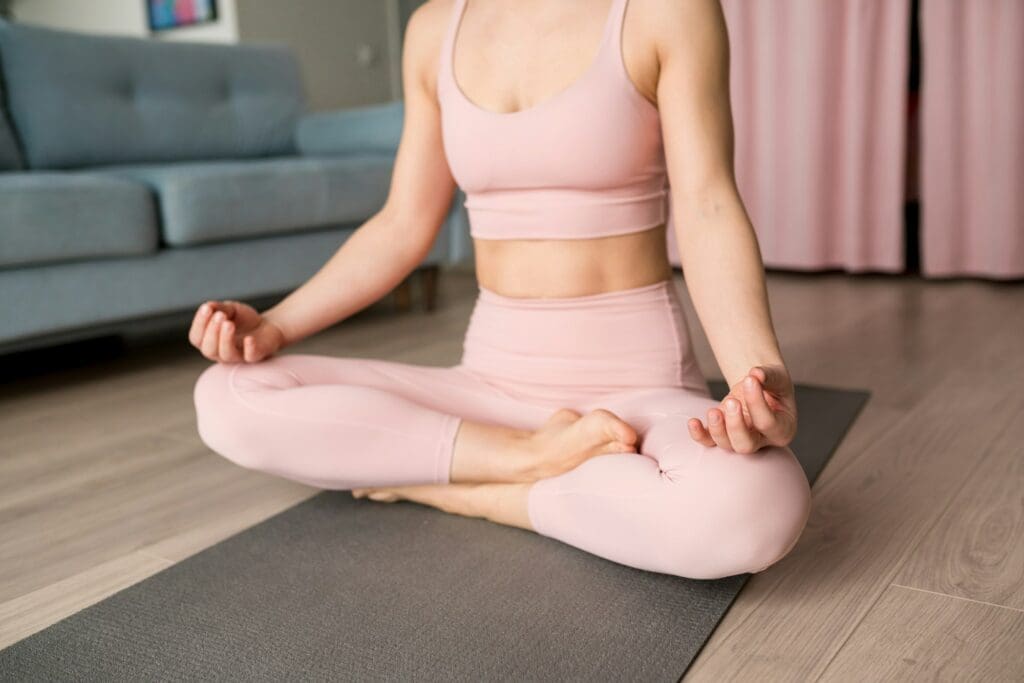
Feeling overwhelmed by anxiety and stress can be a daunting experience. Luckily, there are several effective techniques and strategies that you can integrate into your daily routine to help manage these feelings.
By adopting certain practices, you not only work towards reducing stress and anxiety but also promote overall well-being. In this section, we will explore various methods that can offer relief and enable you to live a more balanced and peaceful life.

Feeling overwhelmed by anxiety and stress is something many people experience. The good news is that there are proven methods to help manage these feelings effectively.
By incorporating certain techniques into your daily routine, you can significantly improve your mental well-being. Let’s explore some of the best strategies to combat anxiety and stress.
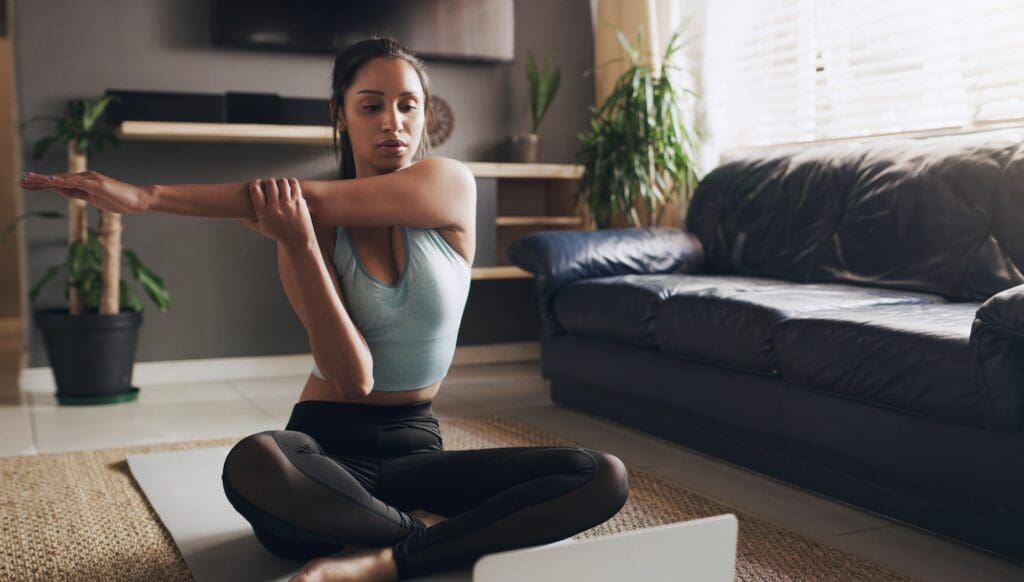
Quality sleep is more than just the time you spend with your eyes closed. It’s about how well your body and mind rejuvenate during those hours.
Without quality sleep, managing anxiety and stress can become an uphill battle. Research shows that improving sleep can significantly enhance your overall well-being. It boosts your immune system, improves cognitive function, and helps maintain emotional balance.
One effective technique to enhance sleep quality is to create a calming bedtime routine. Consider incorporating activities like reading a book, listening to soft music, or practicing a guided meditation for easing into sleep.
This can help signal to your brain that it’s time to wind down, making it easier for you to fall and stay asleep.
Additionally, keeping a consistent sleep schedule by going to bed and waking up at the same time every day can regulate your body’s internal clock. This consistency helps ensure you get enough rest each night, further helping to manage stress and anxiety levels.
Mindfulness practices can also improve sleep quality. A study published in Adolescent Psychiatry found that mindfulness-based interventions significantly reduce sleep disturbances.
By focusing on the present moment and letting go of worries, you can create a more peaceful mind, conducive to restful sleep.
Remember, quality sleep is a cornerstone of overall health and well-being. By prioritizing your rest, you lay a strong foundation for better handling stress and anxiety, leading to a richer and more vivid experience of being alive.
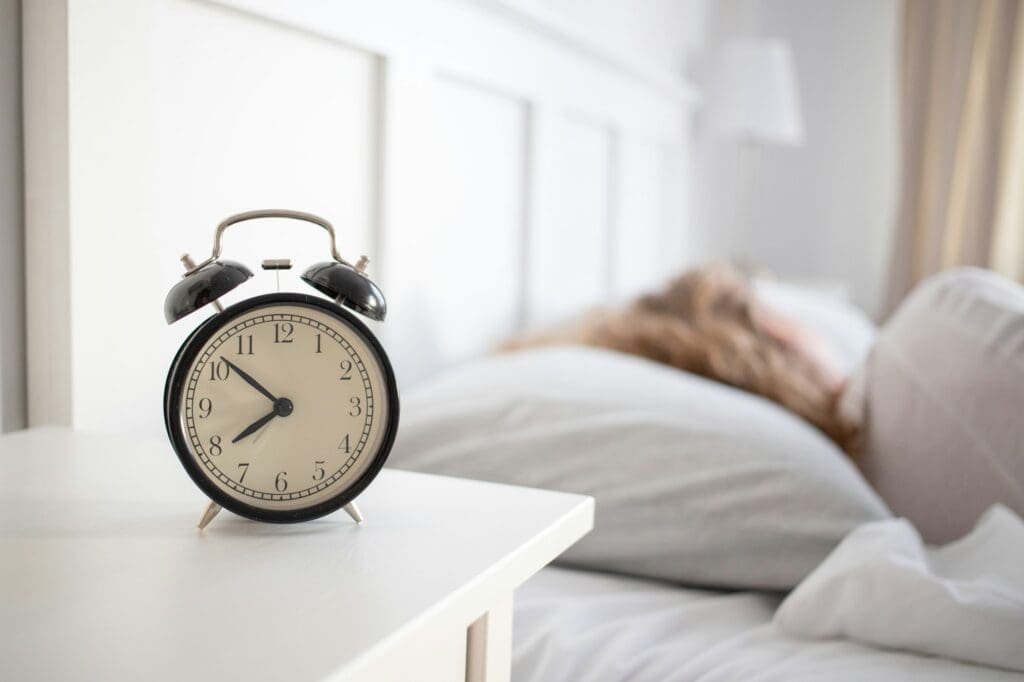
Expressing yourself through art, music, or other hobbies can be a powerful way to manage stress and anxiety. Not only do these activities offer a mental escape, but they also provide a sense of accomplishment and joy.
Engaging in creative outlets allows you to shift your focus from stressors and immerse yourself in something you truly enjoy.

Seeking professional help is a vital step when managing anxiety and stress becomes overwhelming and starts to interfere with your daily life. Feeling anxious or stressed is natural, but if these feelings persist and impact your ability to function, it might be time to consider therapy or counseling.
Therapy Options: There are several types of therapies available. Cognitive Behavioral Therapy (CBT) is a widely recognized method that helps you understand and change the thought patterns that contribute to anxiety and stress. CBT is evidence-based and effective for many individuals.
When to Seek Help: If you find yourself constantly worried, experiencing panic attacks, or if your stress leads to physical symptoms like headaches or insomnia, seeking professional help is a wise decision.
Additionally, if your anxiety or stress affects your work, relationships, or daily activities, it’s important to reach out.
Remember, seeking help is a sign of strength, not weakness. Mental health professionals are trained to provide you with tools and strategies to manage your stress and anxiety effectively.
Don’t hesitate to schedule an appointment if you feel that your mental health is at risk. Your well-being is important, and professional guidance can make a significant difference.

Indeed, physical and mental exercises can significantly alleviate anxiety and stress. Practices like yoga and tai chi blend movement, meditation, and breath control, offering both physical and mental benefits.
Additionally, regular aerobic exercises such as walking, jogging, or cycling increase endorphins, the body’s natural mood lifters.
Mentally, engaging in mindfulness meditation and progressive muscle relaxation are also proven techniques. These methods help you stay grounded, improve your focus, and encourage a sense of calm.
Absolutely! Meditation can be a powerful tool for stress relief. By focusing your attention and eliminating the stream of jumbled thoughts that may be crowding your mind, meditation can help enhance your emotional well-being.
There are various forms of meditation, including mindfulness meditation, which encourages you to focus on the present moment without judgment.
This practice can significantly reduce stress, anxiety, and negative emotions, while also improving concentration and fostering positive feelings.
Clinical studies have shown that mindfulness-based interventions are effective in reducing symptoms of stress and anxiety, making meditation a beneficial habit to incorporate into your daily routine.
Absolutely! Breathing techniques can be incredibly effective in managing anxiety. One popular method is the 4-7-8 breathing technique, where you inhale for 4 seconds, hold the breath for 7 seconds, and then exhale slowly for 8 seconds.
This simple exercise can help calm the nervous system and reduce stress quickly.
Another proven technique is the 3-Minute Breathing Space. This involves three steps: becoming aware of your feelings and thoughts, focusing all attention on your breath, and then expanding awareness to your entire body.
This short but powerful exercise can help ground you in the present moment, alleviating anxiety almost instantly.
For a more extensive practice, consider a 5-Minute Breathing Meditation. This involves sitting comfortably and focusing solely on your breath, noticing each inhalation and exhalation.
If your mind wanders, gently bring your focus back to your breath. Consistent practice can cultivate mindfulness and significantly reduce anxiety over time.
Absolutely! Music is a powerful tool when it comes to easing anxiety and stress. The rhythm and melody of music can have a calming effect on your nervous system.
For instance, listening to slow, soothing music can lower your heart rate and reduce levels of stress hormones. It doesn’t have to be any specific genre; what matters most is that the music resonates with you and brings you a sense of peace.
So go ahead and create a playlist that helps you relax—your mind and body will thank you!
Aromatherapy leverages the use of essential oils to promote relaxation and reduce anxiety. One of the simplest ways to get started is by using an essential oil diffuser.
Popular oils like lavender, chamomile, and bergamot are known for their calming effects. You can also apply diluted essential oils to your skin, particularly on pulse points like your wrists and temples, for a more direct application.
Another effective method is incorporating essential oils into your daily routine. Try adding a few drops of your favorite calming essential oil to a warm bath and allow the steam to carry the soothing scents.
Alternatively, you can use aromatherapy sprays to mist your pillow before sleep, helping you ease into a restful slumber.
Remember, quality matters when it comes to essential oils. Always choose high-quality, therapeutic-grade oils for the best results. With consistent use, aromatherapy can become a delightful part of your strategy to manage anxiety and stress.
Absolutely! In today’s digital age, there are several mindfulness and meditation apps that can aid in managing anxiety and stress. Popular choices include Headspace and Calm, both of which offer guided meditations, sleep stories, and breathing exercises designed to help you find calm amidst chaos.
Another noteworthy app is Smiling Mind, which provides mindfulness meditations that are specifically tailored for different age groups, from children to adults.
Insight Timer is another great option, offering a vast library of free meditations and talks from various teachers around the world.
If you’re looking for something more structured, 10% Happier and Mindfulness Coach provide courses and lessons aimed at incorporating mindfulness into your daily routine.
These apps not only help you build resilience through consistent practice but also track your progress, making it easier to integrate mindfulness into your life and reduce the impacts of stress and anxiety.
While research on the long-term effectiveness of these apps is still limited, many users report significant benefits and improvements in their mental well-being.
Managing anxiety and stress is an ongoing journey, but with the right tools and techniques, you can find relief and improve your overall well-being.
By incorporating mindfulness meditation, engaging in creative outlets, and ensuring you get quality sleep, you can mitigate the effects of stress and lead a more balanced life.
Remember, it’s essential to pay attention to your body’s signals and take proactive steps to protect your mental health.
Whether it’s through professional therapy, practicing mindfulness, or finding a hobby you love, there are numerous ways to cope with anxiety and stress effectively.
Everyone’s path to wellness is unique, so don’t hesitate to explore different strategies to see what works best for you. And if you ever find yourself overwhelmed, seeking professional help is a strong and positive step towards feeling better.
Ultimately, managing stress and anxiety is about creating a toolkit of techniques that you can draw upon in various situations. By doing so, you’ll build resilience and foster a sense of control over your life. Here’s to finding peace and tranquility amid life’s challenges!
Anxiety and stress are part of the human experience, emotions that everyone faces at some point in life. Whether it’s due to work, relationships, or just the pressures of modern living, these feelings can sometimes become overwhelming.
But don’t fret! There are practical techniques that can help you manage these emotions effectively.
“You can’t always control what goes on outside, but you can always control what goes on inside.” – Wayne Dyer
In this article, we’ll explore several strategies that can help you regain control and lead a more balanced, stress-free life. From deep breathing exercises to mindful meditation, and even practical lifestyle adjustments, you’ll find a variety of methods that suit different needs and preferences.
Mindfulness meditation is a powerful tool to anchor yourself in the “now,” helping you to find calm amidst the chaos. This practice involves focusing your mind on the present moment, allowing thoughts to pass by without judgment.
It’s an effective way to reduce anxiety and stress, promoting a sense of peace and balance.
Imagine sitting comfortably in a quiet space, closing your eyes, and taking a deep breath. As you exhale, let go of the day’s worries and bring your attention to the rhythm of your breath. This simple act of concentration can draw your mind away from anxious thoughts and ground you in the present.
One common technique is the body scan. Begin by focusing on your toes and slowly move your attention upwards through your body. Notice any sensations—tingling, warmth, or tension—as you go. This exercise can increase awareness of how stress affects you physically and help you release it.
Another popular practice is observing your thoughts. When you meditate, thoughts will naturally arise. Instead of engaging with them, picture them as clouds drifting across the sky.
Acknowledge their presence and gently bring your focus back to your breath. This reinforces the skill of not getting entangled in stressful thoughts.
Remember, mindfulness is not about achieving a blank mind; it’s about creating a gentle space of awareness. With regular practice, you might find it easier to remain calm and centered, even in challenging situations.
If you’re new to mindfulness, start with just a few minutes a day and gradually increase the duration as you become more comfortable.
Feeling overwhelmed by anxiety and stress can be a daunting experience. Luckily, there are several effective techniques and strategies that you can integrate into your daily routine to help manage these feelings.
By adopting certain practices, you not only work towards reducing stress and anxiety but also promote overall well-being. In this section, we will explore various methods that can offer relief and enable you to live a more balanced and peaceful life.
Feeling overwhelmed by anxiety and stress is something many people experience. The good news is that there are proven methods to help manage these feelings effectively.
By incorporating certain techniques into your daily routine, you can significantly improve your mental well-being. Let’s explore some of the best strategies to combat anxiety and stress.
Quality sleep is more than just the time you spend with your eyes closed. It’s about how well your body and mind rejuvenate during those hours.
Without quality sleep, managing anxiety and stress can become an uphill battle. Research shows that improving sleep can significantly enhance your overall well-being. It boosts your immune system, improves cognitive function, and helps maintain emotional balance.
One effective technique to enhance sleep quality is to create a calming bedtime routine. Consider incorporating activities like reading a book, listening to soft music, or practicing a guided meditation for easing into sleep.
This can help signal to your brain that it’s time to wind down, making it easier for you to fall and stay asleep.
Additionally, keeping a consistent sleep schedule by going to bed and waking up at the same time every day can regulate your body’s internal clock. This consistency helps ensure you get enough rest each night, further helping to manage stress and anxiety levels.
Mindfulness practices can also improve sleep quality. A study published in Adolescent Psychiatry found that mindfulness-based interventions significantly reduce sleep disturbances.
By focusing on the present moment and letting go of worries, you can create a more peaceful mind, conducive to restful sleep.
Remember, quality sleep is a cornerstone of overall health and well-being. By prioritizing your rest, you lay a strong foundation for better handling stress and anxiety, leading to a richer and more vivid experience of being alive.
Expressing yourself through art, music, or other hobbies can be a powerful way to manage stress and anxiety. Not only do these activities offer a mental escape, but they also provide a sense of accomplishment and joy.
Engaging in creative outlets allows you to shift your focus from stressors and immerse yourself in something you truly enjoy.
Seeking professional help is a vital step when managing anxiety and stress becomes overwhelming and starts to interfere with your daily life. Feeling anxious or stressed is natural, but if these feelings persist and impact your ability to function, it might be time to consider therapy or counseling.
Therapy Options: There are several types of therapies available. Cognitive Behavioral Therapy (CBT) is a widely recognized method that helps you understand and change the thought patterns that contribute to anxiety and stress. CBT is evidence-based and effective for many individuals.
When to Seek Help: If you find yourself constantly worried, experiencing panic attacks, or if your stress leads to physical symptoms like headaches or insomnia, seeking professional help is a wise decision.
Additionally, if your anxiety or stress affects your work, relationships, or daily activities, it’s important to reach out.
Remember, seeking help is a sign of strength, not weakness. Mental health professionals are trained to provide you with tools and strategies to manage your stress and anxiety effectively.
Don’t hesitate to schedule an appointment if you feel that your mental health is at risk. Your well-being is important, and professional guidance can make a significant difference.
Indeed, physical and mental exercises can significantly alleviate anxiety and stress. Practices like yoga and tai chi blend movement, meditation, and breath control, offering both physical and mental benefits.
Additionally, regular aerobic exercises such as walking, jogging, or cycling increase endorphins, the body’s natural mood lifters.
Mentally, engaging in mindfulness meditation and progressive muscle relaxation are also proven techniques. These methods help you stay grounded, improve your focus, and encourage a sense of calm.
Absolutely! Meditation can be a powerful tool for stress relief. By focusing your attention and eliminating the stream of jumbled thoughts that may be crowding your mind, meditation can help enhance your emotional well-being.
There are various forms of meditation, including mindfulness meditation, which encourages you to focus on the present moment without judgment.
This practice can significantly reduce stress, anxiety, and negative emotions, while also improving concentration and fostering positive feelings.
Clinical studies have shown that mindfulness-based interventions are effective in reducing symptoms of stress and anxiety, making meditation a beneficial habit to incorporate into your daily routine.
Absolutely! Breathing techniques can be incredibly effective in managing anxiety. One popular method is the 4-7-8 breathing technique, where you inhale for 4 seconds, hold the breath for 7 seconds, and then exhale slowly for 8 seconds.
This simple exercise can help calm the nervous system and reduce stress quickly.
Another proven technique is the 3-Minute Breathing Space. This involves three steps: becoming aware of your feelings and thoughts, focusing all attention on your breath, and then expanding awareness to your entire body.
This short but powerful exercise can help ground you in the present moment, alleviating anxiety almost instantly.
For a more extensive practice, consider a 5-Minute Breathing Meditation. This involves sitting comfortably and focusing solely on your breath, noticing each inhalation and exhalation.
If your mind wanders, gently bring your focus back to your breath. Consistent practice can cultivate mindfulness and significantly reduce anxiety over time.
Absolutely! Music is a powerful tool when it comes to easing anxiety and stress. The rhythm and melody of music can have a calming effect on your nervous system.
For instance, listening to slow, soothing music can lower your heart rate and reduce levels of stress hormones. It doesn’t have to be any specific genre; what matters most is that the music resonates with you and brings you a sense of peace.
So go ahead and create a playlist that helps you relax—your mind and body will thank you!
Aromatherapy leverages the use of essential oils to promote relaxation and reduce anxiety. One of the simplest ways to get started is by using an essential oil diffuser.
Popular oils like lavender, chamomile, and bergamot are known for their calming effects. You can also apply diluted essential oils to your skin, particularly on pulse points like your wrists and temples, for a more direct application.
Another effective method is incorporating essential oils into your daily routine. Try adding a few drops of your favorite calming essential oil to a warm bath and allow the steam to carry the soothing scents.
Alternatively, you can use aromatherapy sprays to mist your pillow before sleep, helping you ease into a restful slumber.
Remember, quality matters when it comes to essential oils. Always choose high-quality, therapeutic-grade oils for the best results. With consistent use, aromatherapy can become a delightful part of your strategy to manage anxiety and stress.
Absolutely! In today’s digital age, there are several mindfulness and meditation apps that can aid in managing anxiety and stress. Popular choices include Headspace and Calm, both of which offer guided meditations, sleep stories, and breathing exercises designed to help you find calm amidst chaos.
Another noteworthy app is Smiling Mind, which provides mindfulness meditations that are specifically tailored for different age groups, from children to adults.
Insight Timer is another great option, offering a vast library of free meditations and talks from various teachers around the world.
If you’re looking for something more structured, 10% Happier and Mindfulness Coach provide courses and lessons aimed at incorporating mindfulness into your daily routine.
These apps not only help you build resilience through consistent practice but also track your progress, making it easier to integrate mindfulness into your life and reduce the impacts of stress and anxiety.
While research on the long-term effectiveness of these apps is still limited, many users report significant benefits and improvements in their mental well-being.
Managing anxiety and stress is an ongoing journey, but with the right tools and techniques, you can find relief and improve your overall well-being.
By incorporating mindfulness meditation, engaging in creative outlets, and ensuring you get quality sleep, you can mitigate the effects of stress and lead a more balanced life.
Remember, it’s essential to pay attention to your body’s signals and take proactive steps to protect your mental health.
Whether it’s through professional therapy, practicing mindfulness, or finding a hobby you love, there are numerous ways to cope with anxiety and stress effectively.
Everyone’s path to wellness is unique, so don’t hesitate to explore different strategies to see what works best for you. And if you ever find yourself overwhelmed, seeking professional help is a strong and positive step towards feeling better.
Ultimately, managing stress and anxiety is about creating a toolkit of techniques that you can draw upon in various situations. By doing so, you’ll build resilience and foster a sense of control over your life. Here’s to finding peace and tranquility amid life’s challenges!









